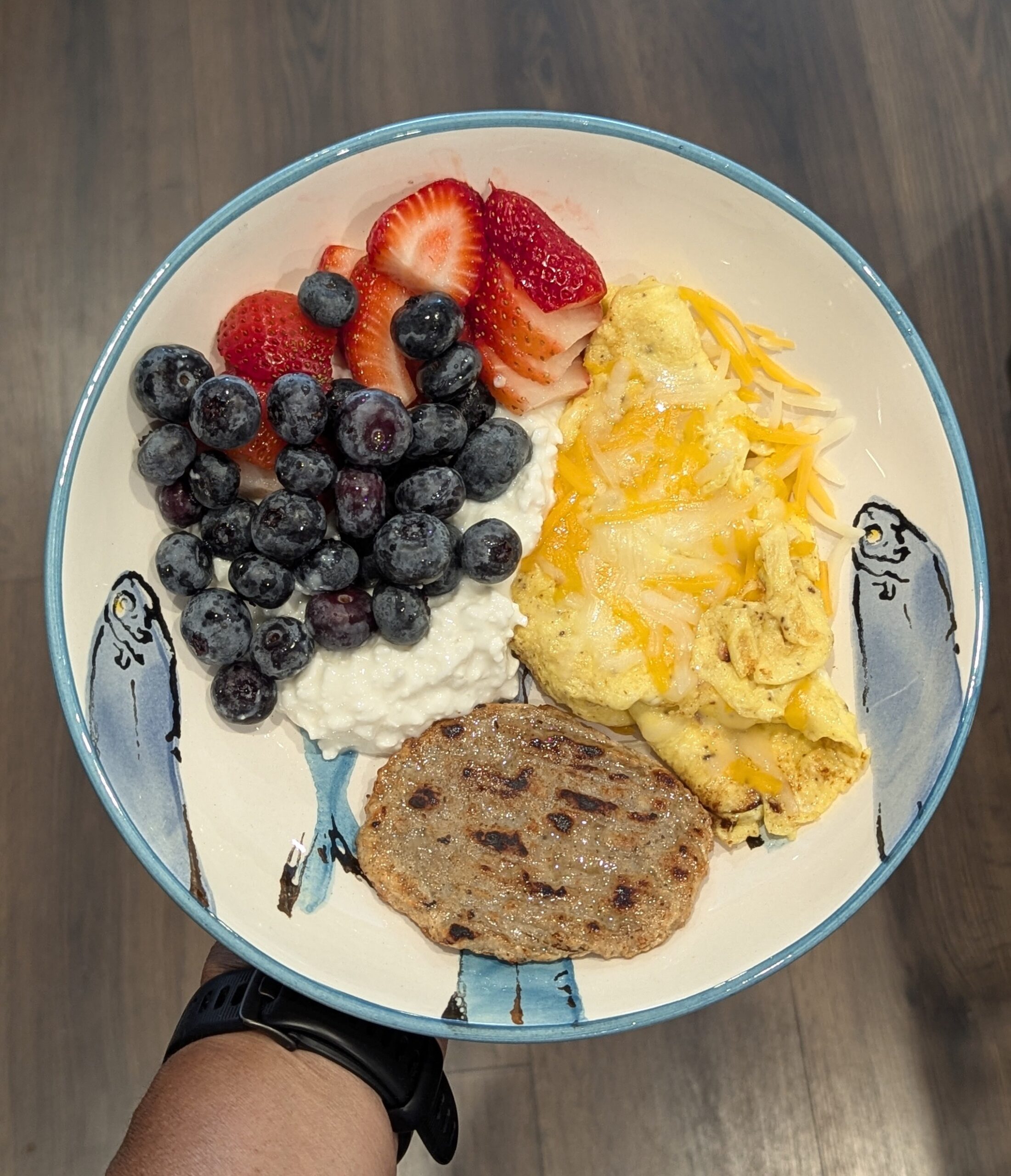Mom was right! Breakfast IS the most important meal!
Like Mom always said, breakfast is the most important meal of the day! Starting your day with a high-protein breakfast, ideally within two hours of waking up, can dramatically impact your metabolism, energy levels, and appetite regulation.
After an overnight fast (you stopped eating 2 hours before going to bed right?), your body is primed to absorb nutrients that stabilize blood sugar and kickstart muscle protein synthesis. Protein slows digestion, curbs cravings, and helps regulate hormones like ghrelin and leptin, which influence hunger and satiety throughout the day.
I’ll be honest, I absolutely love breakfast, but it’s often been my lunch or dinner due to my erratic work schedules. After years of working swing shifts and night shifts, my eating schedule was out of whack! I let the importance of having that initial high-protein meal of the day fall by the wayside. But now that I’m back on track, I really feel the difference! And so will you.
Experts recommend aiming for 25–30 grams of protein at breakfast to support muscle maintenance, blood sugar balance, and fat metabolism, especially the visceral fat hanging around your mid-section. Visceral fat is hormonally active and linked to increased health risks (but we’ll get to that later).
This amount of protein helps prevent the mid-morning energy crash that often follows carb-heavy breakfast foods like toast, bagels, or cereal. A well-balanced high-protein breakfast typically ranges from 300 to 400 calories, depending on your activity level and goals.
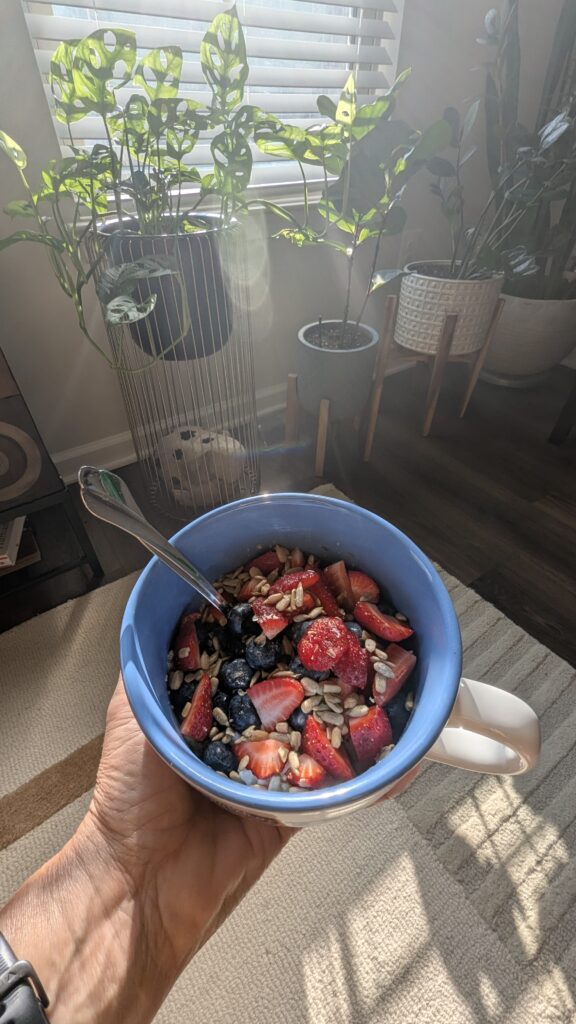
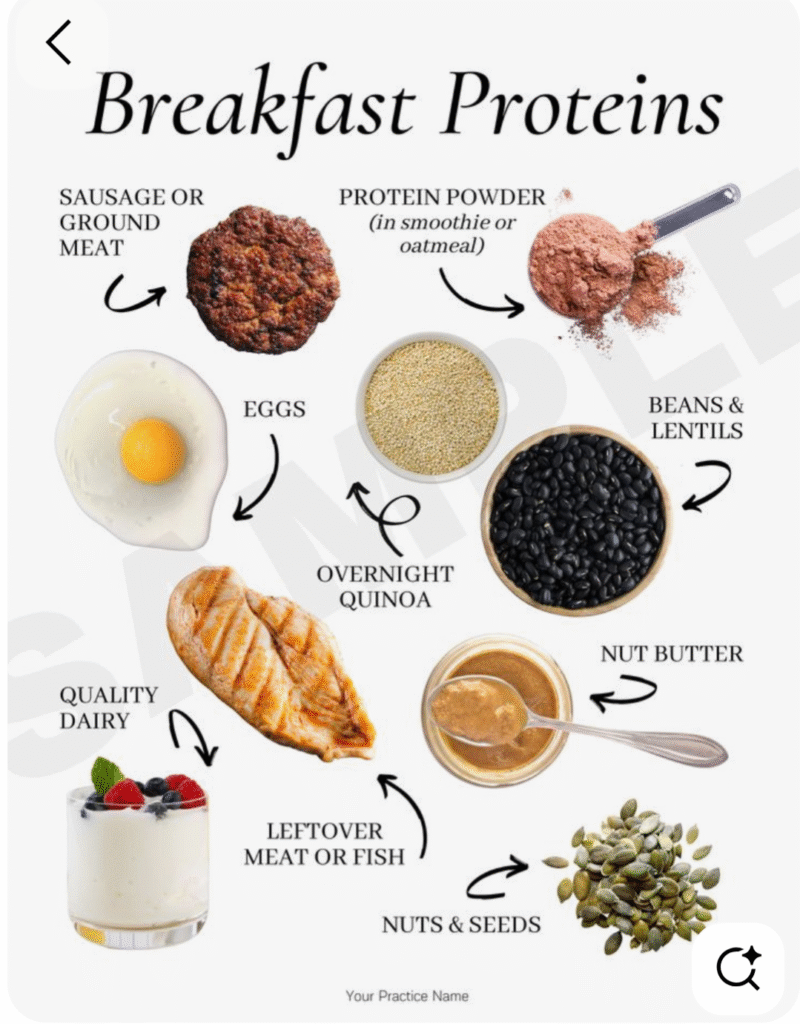
High-Protein Breakfast Matters More as We Age
As we age, our bodies become less efficient at building and maintaining muscle, a process known as anabolic resistance. This means we need more protein per meal to trigger the same muscle-building response we had in our 20s. Starting the day with a high-protein breakfast (25–30 grams) helps counteract this decline, preserving lean muscle mass, which is essential for metabolism, strength, and insulin sensitivity.
Hormonal shifts during perimenopause and menopause also increase the risk of visceral fat accumulation, especially around the abdomen. Trust me, I’m currently dealing with this at the young age of 55. After a few years of being in denial, I realized I had to confront what I already knew to be true. As a lifelong athlete, personal trainer, nutrition coach, and just a post-menopausal woman, I had to practice what I learned & preached.
Protein supports mood
Plus, protein supports the production of neurotransmitters like dopamine and serotonin, which influence mood, motivation, and focus, which are key allies when navigating hormonal changes, stress, or fatigue. By prioritizing protein at breakfast, you’re not just fueling your body, you’re reinforcing your resilience.
The benefits go beyond weight management. A protein-rich morning meal has been shown to:
• Improve insulin sensitivity
• Reduce abdominal fat accumulation
• Increase thermogenesis (calorie burn)
• Support lean muscle retention (it’s harder to maintain muscle as we age)
• Enhance mood and cognitive function (clearer mind)
I’ve also noticed that I have a clearer head and more energy to plow through my workouts. I’m less hungry throughout the day. That first meal sets the tone.
Whether it’s eggs with bacon, Greek yogurt with hemp seeds & blueberries, or a protein smoothie with nut butter, prioritizing protein early in the day sets the tone for metabolic stability and sustained energy.
My go tos meals are oatmeal with cottage cheese, blueberries & strawberries, and pumpkin seeds. My second favorite is two eggs with chicken maple sausage, cottage cheese with blueberries. I strive for 30g of protein for breakfast while remaining under 400 calories.
For me, it helps to cycle through the same menu. Boring, I know, but because I’m familiar with the macronutrients in those meals, it works for me. One constant is blueberries. I love blueberries, and they’re warriors against visceral fat. Let’s talk more about that visceral fat.
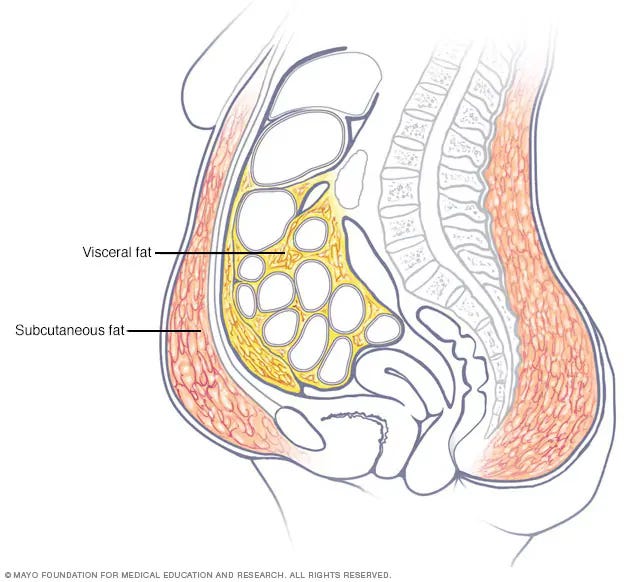
Blueberries vs. Visceral Fat: A Tiny Fruit with Big Impact
Visceral fat, the deep belly fat that wraps around your organs, isn’t just stubborn; it’s metabolically active and linked to serious health risks like heart disease, insulin resistance, and inflammation. But nature offers a sweet solution: blueberries. These vibrant little berries are packed with polyphenols, especially anthocyanins, which have been shown to reduce inflammation and improve insulin sensitivity, which are two key drivers of visceral fat accumulation.
Recent studies suggest that eating blueberries regularly may help your body burn more fat during exercise. In one trial, participants who consumed a cup of wild blueberries daily for two weeks showed a significant increase in fat oxidation during moderate-intensity workouts, up to 43% more fat burned at peak intervals compared to baseline levels. That means your body becomes more efficient at using fat as fuel, especially during endurance activities like walking, cycling, or hiking.
Blueberries also support gut health, which plays a surprising role in fat storage. Their fiber and antioxidant content help feed beneficial gut bacteria, reduce systemic inflammation, and regulate appetite hormones. Plus, they’re low in sugar and easy to pair with protein or healthy fats to maximize nutrient absorption. I have them with cottage cheese, oatmeal, blended into smoothies, or eaten straight from the fridge. They’re a delicious way to fight visceral fat from the inside out.
This habit, a high-protein breakfast 2 hours after waking, has been a game-changer for me. It helps support the hormonal fluctuations my body is going through, reduces inflammation, and helps me feel strong and satisfied. Give it a try! Let me know in the comments how it went!
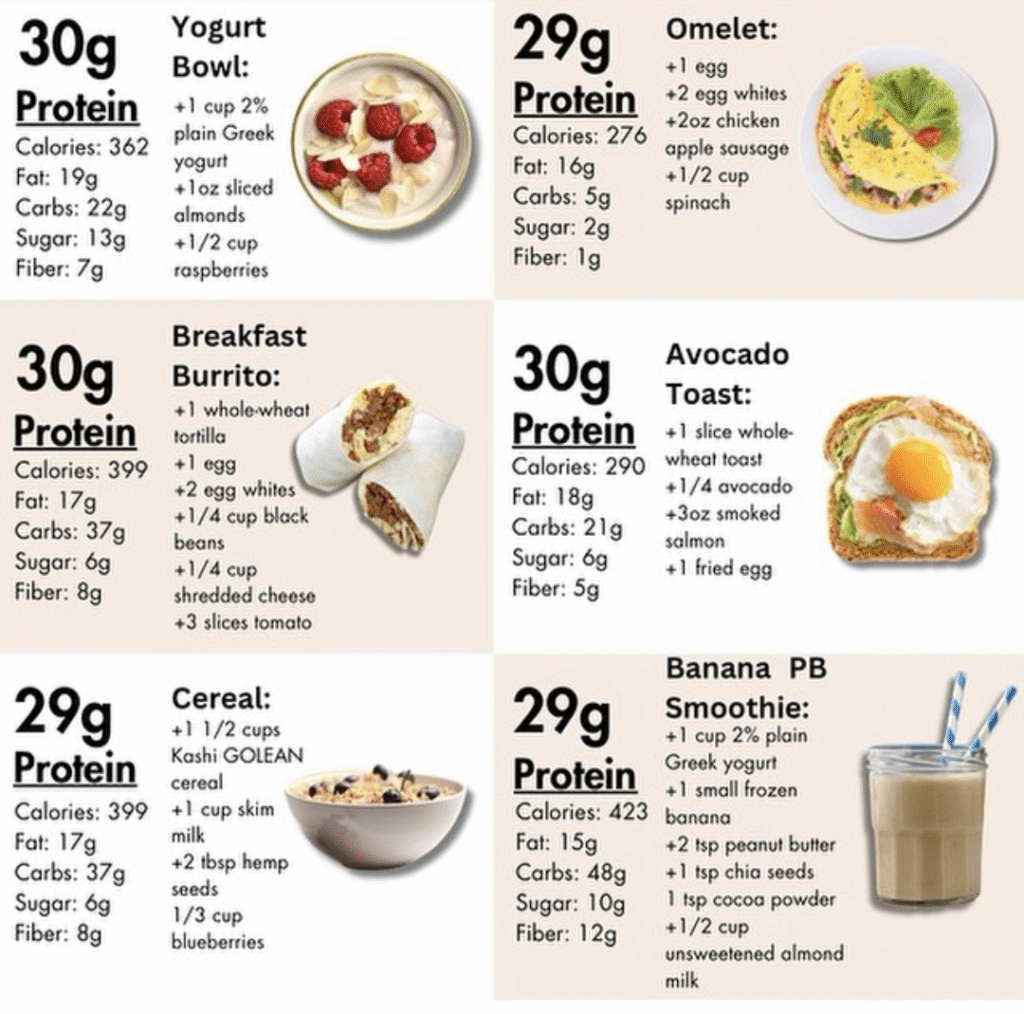
Share your protein struggles with me in the comments. Keep on keeping on!
Be Well, Edrika

